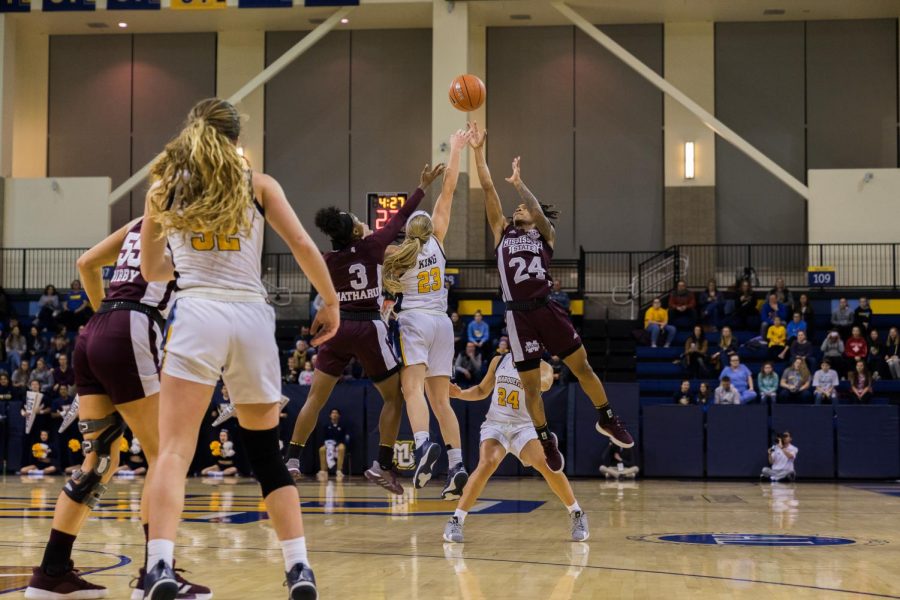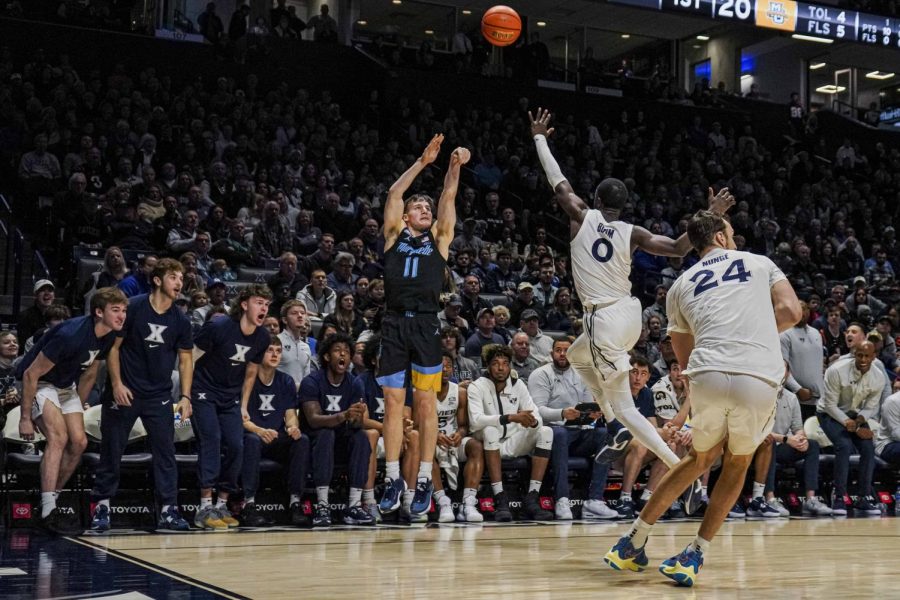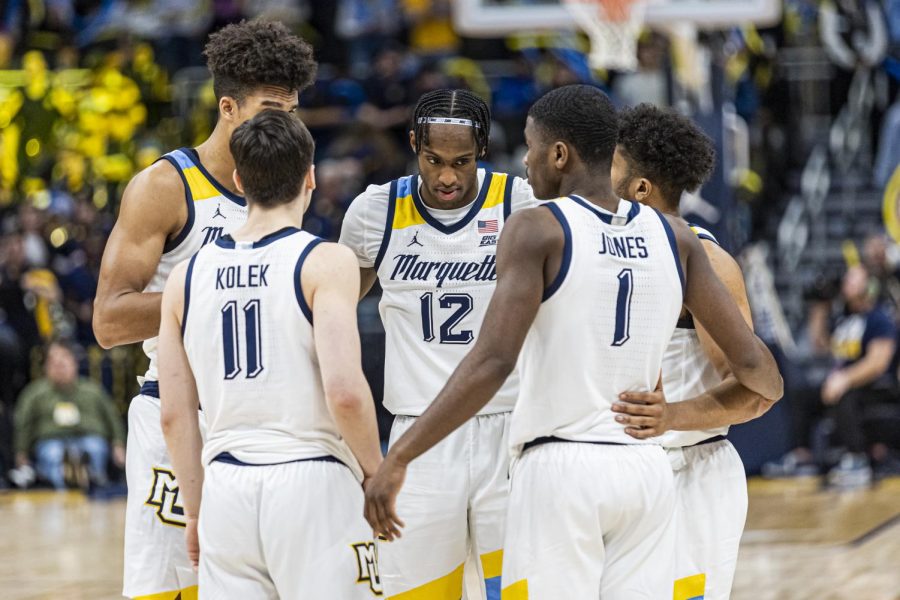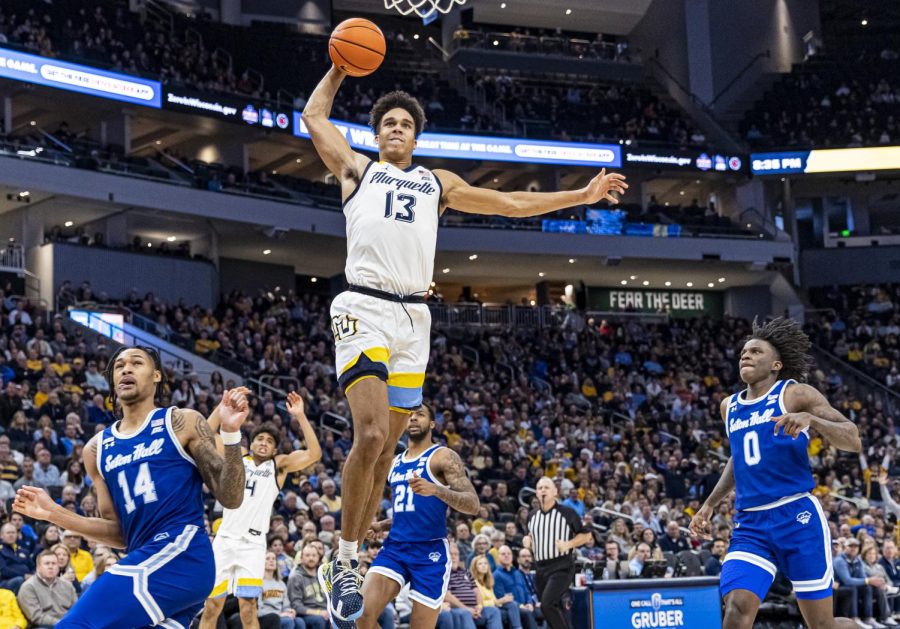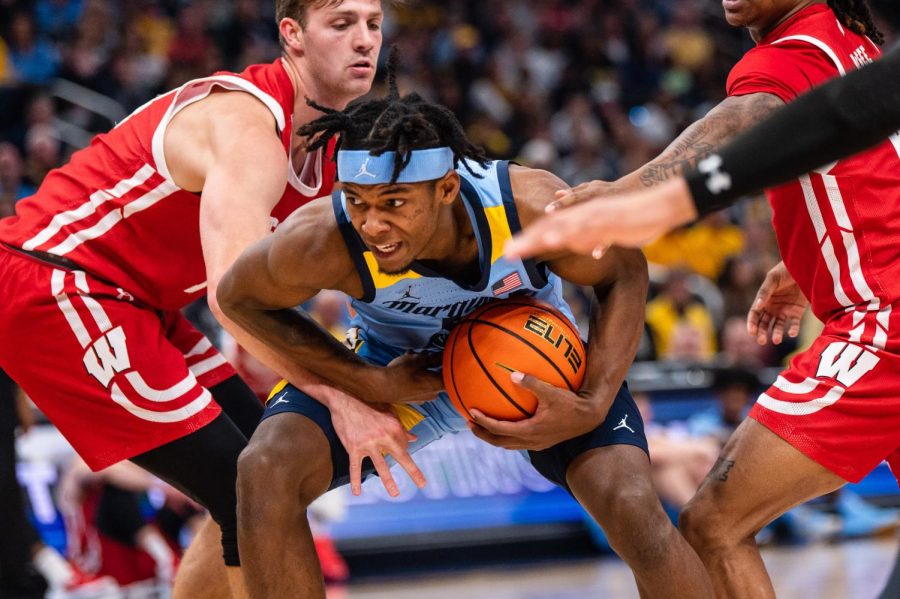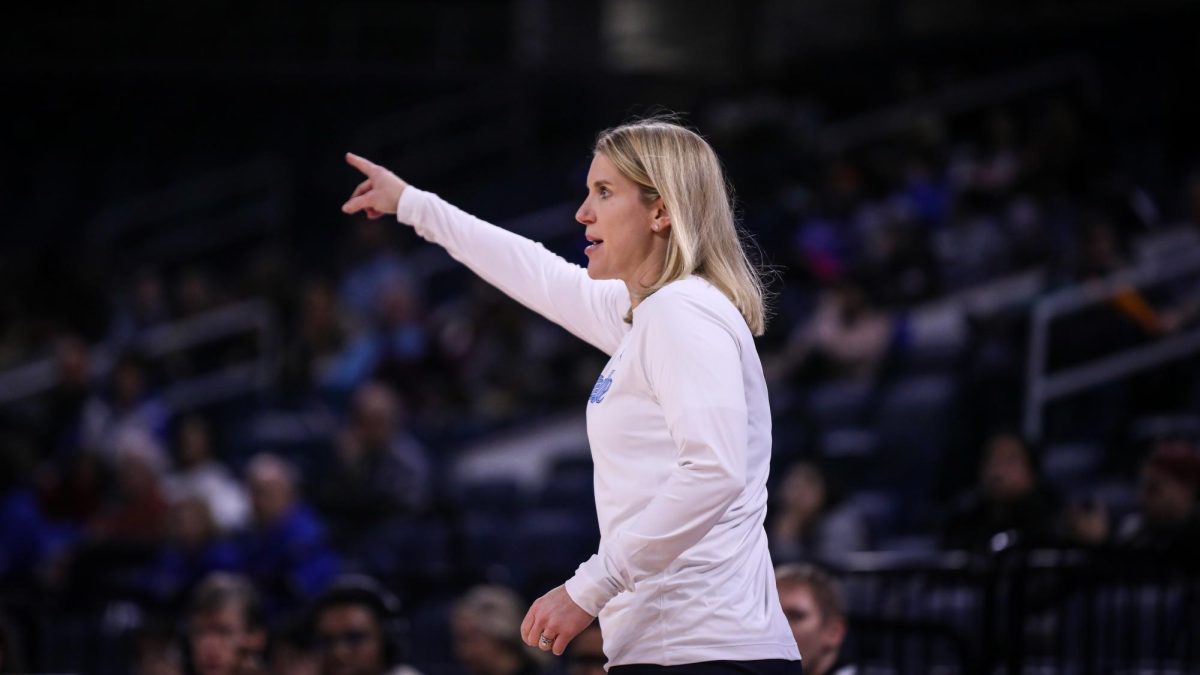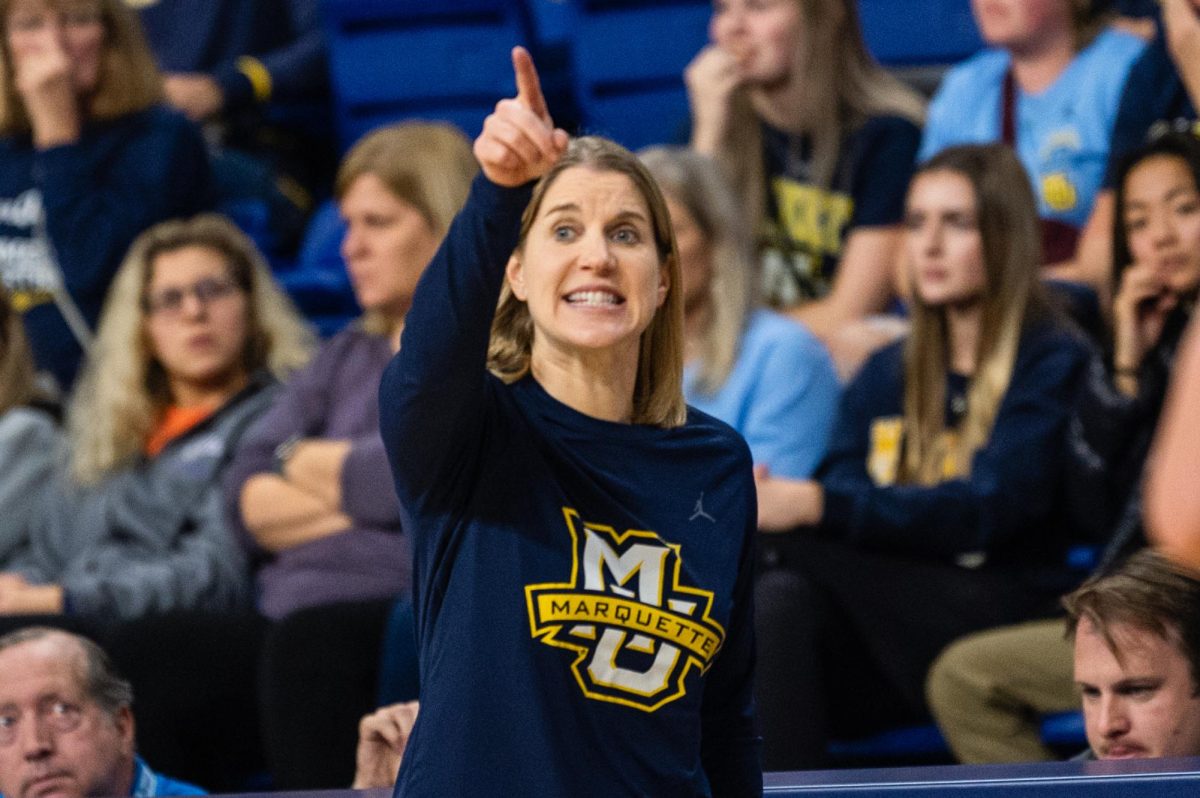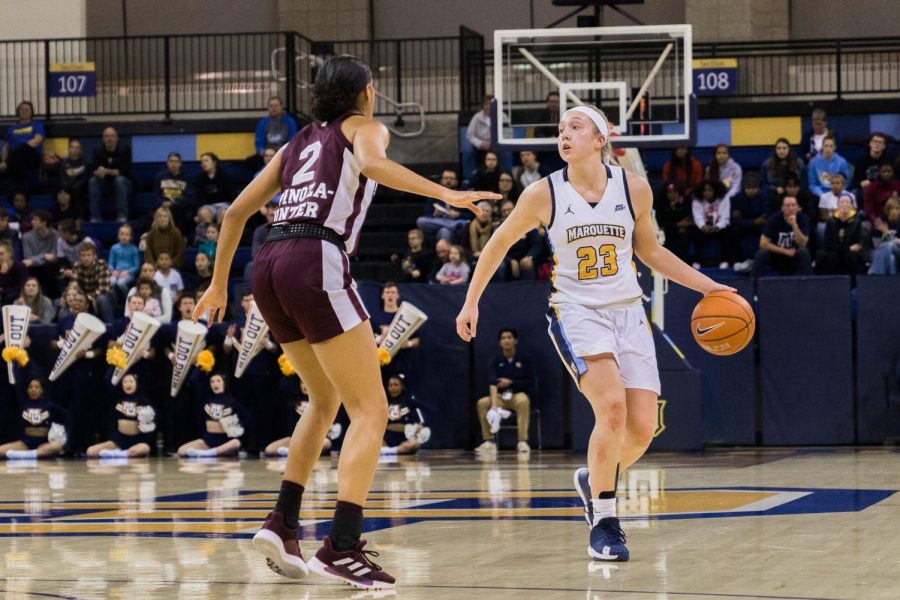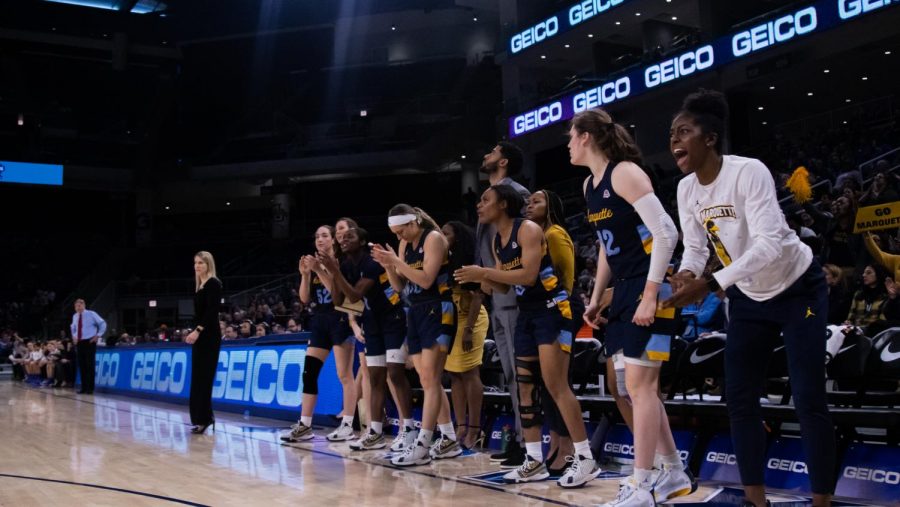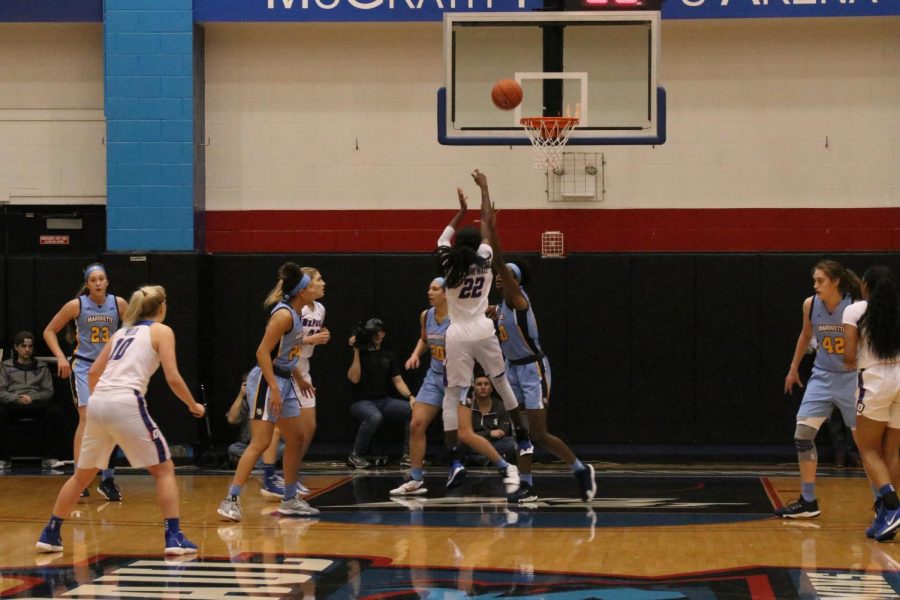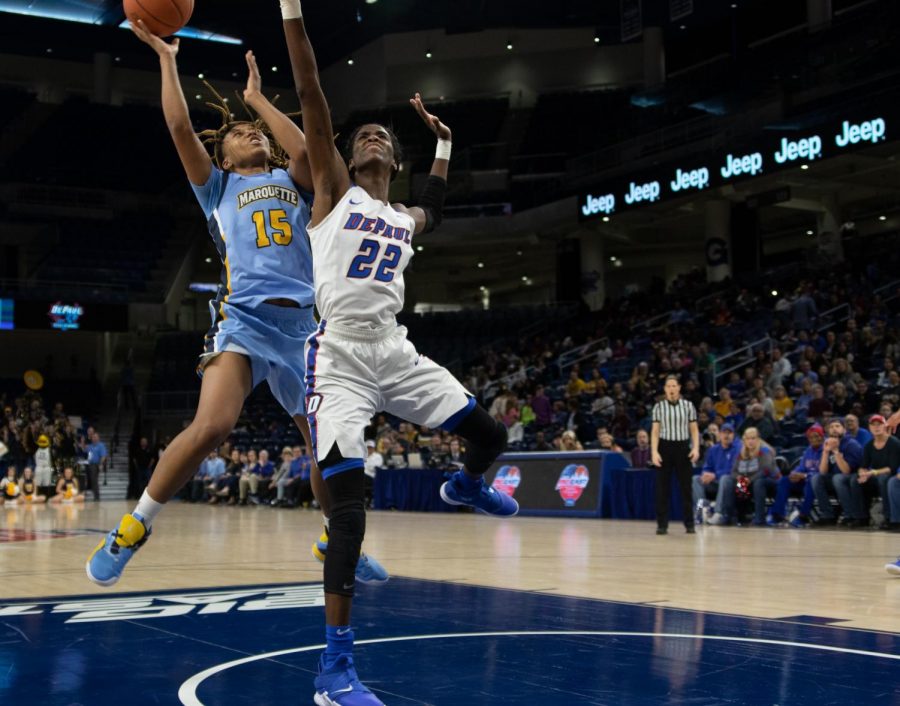For many college basketball programs, the first week of November kicks off the final stretch of preparation for their upcoming season.
However, for Marquette men’s and women’s basketball, it will mark the end of their 14-day quarantine, which began Oct. 21 after a member of each program tested positive for COVID-19. Due to this, Marquette coaches and players had different responses regarding the pandemic based on personal experience when talking during BIG EAST media days Oct. 28 and Oct. 29, as both programs were quarantined Oct. 21.
BIG EAST Commissioner Val Ackerman mentioned during both the BIG EAST men’s and women’s basketball media days that the conference is relying on the Center for Disease Control and local public health officials for testing and quarantine guidelines.
“The NCAA guidance is calling for minimum three-times-a-week testing for what they call Tier-1 individuals,” Ackerman said. “We will have standards in the BIG EAST as it relates to the type of testing that we’re using. We expect, at this point, a mix of PCR and antigen testing.”
According to the NCAA Core Principles of Resocialization of College Basketball Guidelines, when a Tier-1 individual tests positive for COVID-19, it is recommended that the remaining Tier-1 individuals go into a 14-day quarantine as soon as test results are known. Contact tracing is set to begin immediately following the first positive test result per the guidelines.
Spoken from the experience her team is going through, women’s basketball head coach Megan Duffy said it is hard for her team to be away from the court.
“It’s really difficult to watch,” Duffy said. “Our team obviously has great momentum going into practice. They’re in the best mood when they’re at practice, they’re excited to be out there, they’re healthy. Then obviously to kind of stop operations and just kind of wait around and watch how the testing evolves is challenging.”
Men’s basketball head coach Steve Wojciechowski said even though his team is not able to be on the court together, everyone is remaining healthy and they are still studying film and holding Zoom meetings to identify roles.
“We’re trying to do things to continue to move our team forward,” Wojciechowski said. “A lot of mental training, a lot of mental reps, as opposed to physical 5-on-5.”
Duffy said adapting and dealing with quarantine is not necessarily a negative thing.
“As coaches, we’re such planners, in a lot of ways we want to predict all the way out to March Madness,” Duffy said. “Even going back to the spring all the way through the summer (and) now into a new academic year, we have been forced to really adapt and change the way we approach every day with our teams and with our staff.”
Wojciechowski said his team has been responsible and that this was an outlier situation. He said Marquette’s basketball programs being quarantined just shows how nobody is immune.
“The COVID positive test was confusing, to be quite frank with you, because I’m not quite sure our guys could be doing anything more than they’re already doing,” Wojciechowski said. “They are being responsible. They’re wearing masks. They’re socially distancing. They’re practicing proper hygiene. Their lives have been essentially class, Al McGuire Center, dorm room, period.”
Like most of Duffy’s colleagues, the reigning BIG EAST Coach of the Year said she hopes the approach of the 14-day quarantine might be looked at differently whether it be by the NCAA or the BIG EAST.
“Whether that’s knocking it down to a 10-day period, if it’s the daily testing, there’s some ways when you have a whole program of healthy individuals sitting at home, in their dorms, in their apartments,” Duffy said. “I think there has to be a way that we can look into it a little bit differently than what we’re doing right now.”
Both Xavier women’s basketball head coach Melanie Moore and Butler women’s head coach Kurt Godlevske said they hope the 14-day period might be revisited, as it can have a toll on players’ mental health.
Seton Hall women’s basketball head coach Tony Bozzella said the likelihood of playing in the current 14-day quarantine is slim to none.
“It’s just not going to happen,” Bozzella said. “Someone’s going to get sick at some point and then to shut your program down, it’s not 14 days. It’s closer to 20 days because 14 days of non-activity and then you need four to six days of activity before you can physically play in a basketball game.”
Villanova men’s basketball head coach Jay Wright said not all conferences are following NCAA guidelines, which is an issue.
“The Big Ten’s already got their own (plan), they’re doing antigen testing daily and they’re not going by the 14-day quarantine. That’s just the beginning,” Wright said. “Then you see the SEC’s got their (plan), they can test out with three days of negative tests. So you’ve already got two conferences that are not going by the guidelines … we’re all going to have to deal with it.”
Like Bozzella, Wright also explained how this can impact the team for much longer. If one player tests positive and the team starts quarantining, another player could test positive three or four days in, which means the timetable resets. On top of that, all players have to get their hearts tested and the team cannot practice until those results come back.
“What we learned and I’m sure Marquette is learning … it’s not just a 14-day impact on your team,” Wright said. “It impacts the team for like 23 days. In our case, we had that impact and we had four major injuries when we came back for guys being out for 23 days. … It’s how you handle that during the season that’s going to dictate what all of our seasons are.”
Bozzella went on to say it is not in the conference’s hands to change this, it is instead in the hands of the NCAA.
“I’ve asked this question to everyone and I still don’t get an answer,” Bozzella said. “How is football able to test out and we’re not able to test out in basketball? I don’t know the answer but until we figure this part out, this is going to be a very disruptive season.”
DePaul women’s basketball head coach Doug Bruno, who is also on the BIG EAST COVID-19 Taskforce, said it is a matter of being safe.
“To the doctors’ credit, if you could cut the doctor’s heads open, we wouldn’t be playing if we’re just listening to the doctors,” Bruno said. “I say that with all affection for the doctors and what they have to do but at the same time, there’s more. We all do want to play. … Now we just got to make sure we ensure safety the best we can.”
For the time being, Ackerman said the NCAA has no plans of adjusting their quarantine rules. But there’s a possibility it may be moved to 10 days due to the limited schedule.
“There’s no suggestion that they’re going to reduce it from 14 to 10 days, but they’re looking at it hard,” Ackerman said. “We will continue to look to the NCAA and our doctors on that one but in the meantime, we’re really just going to be subject to the requirements of local public health authorities as they administer that particular role.”
This story was written by Zoe Comerford and John Leuzzi. They can be reached at [email protected] and j[email protected] and on Twitter @zoe_comerford and @JohnLeuzziMU.

